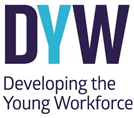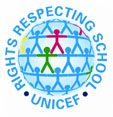Plot
Ben Ross is trying to teach his class about the Holocaust, the time when the Nazis tried to destroy Jewish people and other groups they hated. Most students are unconcerned: it’s all in the past and not much to do with them; one is even asleep. But others are upset and ask questions Mr Ross can’t answer so he sets up an experiment to help the class understand. It seems to be working brilliantly, until it goes too far.
Author – Morton Rhue
Todd Strasser’s website (Morton Rhue is the pen name of Todd Strasser).
Discover more about Todd Strasser
|
Themes – universal ideas
Belonging and alienation, empathy, intimidation and violence, peer pressure, perspective.
More to explore – motifs, symbols, context, setting
American Football, anti-Semitism, bullying, charisma, discipline, fascism, hand gestures, Hitler Youth, Holocaust, misinformation, Nazi Germany, press freedom, slogans, teamwork.
Did you know?
The Wave is based on real events in 1967 at Cubberley High School, California. You can read about it here.
[This video about Cubberley High School may not be available on the NLC schools network].
Further reading
Discover these titles and more
|
Once and its sequels is a series by Morris Gleitzman telling the story of Felix and Zelda in occupied Poland and their lives during and after the Holocaust. Library copies available.
Auslander by Paul Dowswell. A Polish boy is adopted by a German family to be brought up as a perfect Nazi, but he has other ideas. Library copy available.
The book thief by Marcus Zusak. A book narrated by Death, who finds himself quite busy in Nazi Germany. Liesl’s parents have been sent to a concentration camp so she is living with foster parents. Oh, and she steals books, all the time.
Monkey by Veronica Bennett. Harry’s being bullied and the girl he fancies isn’t interested. Simon is in a wheelchair and relies on other people to help him with almost everything. Harry is about to discover his point of view isn’t the only one. Library copy available.
The Fox Girl and the White Gazelle by Victoria Williamson. Caylin is a bully, stealing and threatening other students. Reema is a refugee from Syria. There are misunderstandings and lack of confidence and heartbreak and a fox that needs their help. Library copy available.
Challenge the Echo Chamber by Adam Greenwood [10 minute Ted Talk]
Literacy and Language
The members of The Wave use a gesture to symbolise that they belong. There are many ways to communicate just using your hands, even without sign language.
How many signs can you make with your hands – without being rude 🙂 ?
Information Literacy – finding, analysing and using sources
“He hadn’t heard anything about anyone threatening or hurting anyone and for all he knew, she and her staff had made it all up” The Wave, p91
David is Laurie’s boyfriend. Why is he prepared to believe she would invent a story? Has David become part of an echo chamber?
How could you prevent yourself from being fooled by the social media echo chambers?
Numeracy
The USA continues to use imperial measurements: gallons, miles, feet and inches, pounds. In Britain we learn in metric but many measurements are still imperial e.g. road signs.
Do you think the UK should change to all metric, go back to all imperial measures, or stick with the mix we have just now?
Health and Wellbeing
One of the characters who changes most in The Wave is Robert Billings. To begin with he’s scruffy, asleep in class, bullied and doesn’t care if he fails. The Wave gives him a sense of belonging and he is devastated when Mr Ross reveals everything at the end.
What support would you suggest for Robert?
Rights Respecting Schools
It just wasn’t fair that one person could ruin it for everyone else. He had to convince her.The Wave, p99
Article 12 says young people have the right to their own opinions, and to have those opinions taken seriously. David and Laurie develop different points of view about The Wave, and end up arguing about it.
What would you do if a friend completely disagreed with you about something important?
Developing the Young Workforce
 Mr Ross thinks his class needs more discipline for their work to improve. When The Wave provides the discipline he notices that his students are better prepared and participate more in class – it’s even tidier – but there is less analysis and critical thinking.
Mr Ross thinks his class needs more discipline for their work to improve. When The Wave provides the discipline he notices that his students are better prepared and participate more in class – it’s even tidier – but there is less analysis and critical thinking.
Discipline, preparation, participation, tidiness, analytical skills, and critical thinking are all excellent employability skills. Are some of these skills are more important than others?
Which of these skills would be most helpful at an interview?


